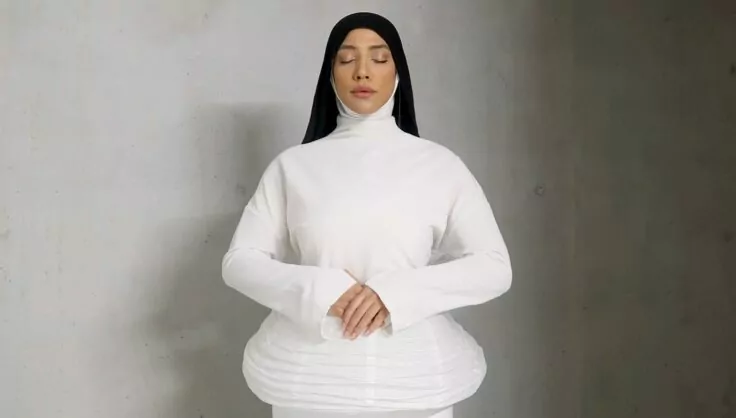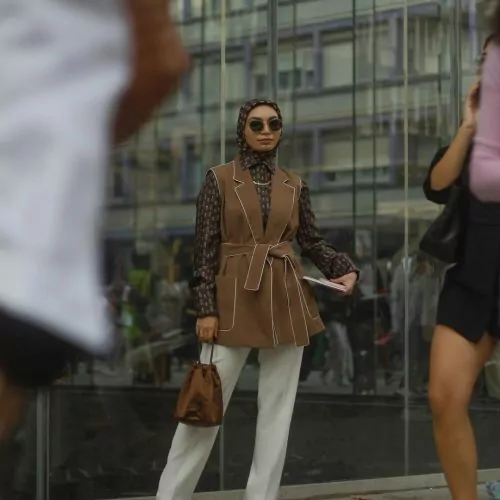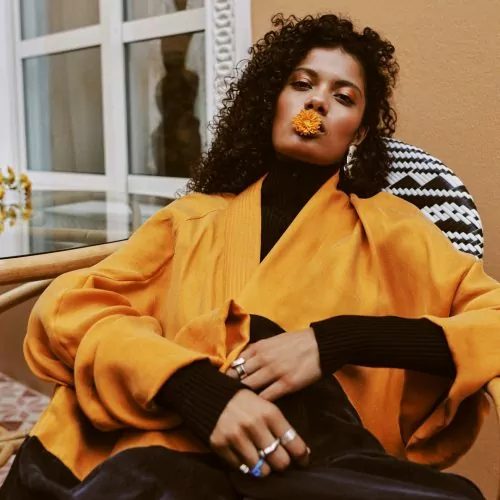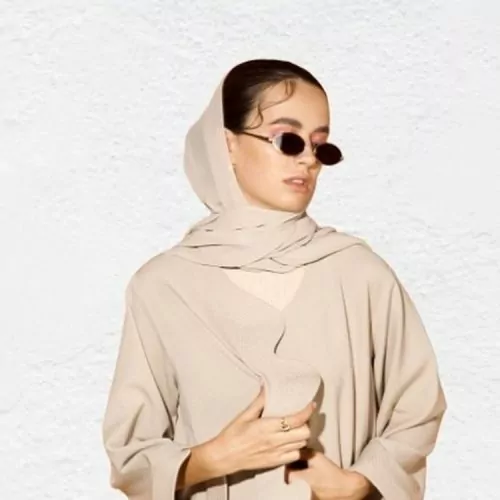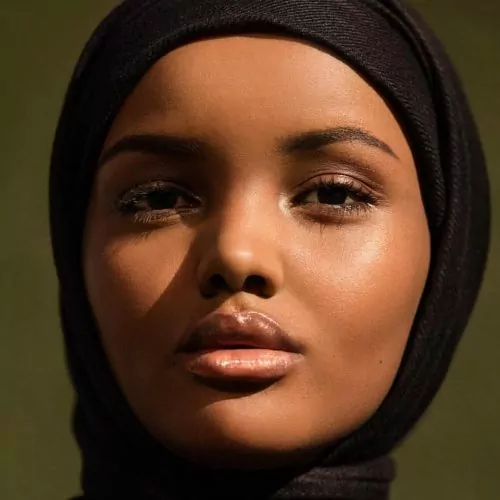In 2018, US-Somali model and humanitarian Halima Aden graced the front cover of British Vogue alongside eight other models of various ethnicities and races. The cover marked the first time in the publication’s 105-year-long history that it featured a hijab-wearing model. At the time, the move felt like a powerful step in the right direction towards actual representation and inclusivity in fashion, but since then, we can count on one hand how many times the hijab has appeared on international editions of Vogue. It’s for this reason that Swiss-Tunisian modest fashion influencer Yousra Zein decided to take matters into her own hands and re-create famous Vogue covers, giving them a modest twist, in a new visual series on the photo-sharing platform. “As a modest dresser, I felt that there was a lack of representation for women like myself,” shared Zein to MILLE. “This inspired me to make seemingly unattainable editorials accessible,” she explained of how the idea for the series came to be.
The results include riffs on more recent covers from 2018 to Karen Mulder photographed by Tyen in the April 1991 edition of British Vogue. So far, Zein has transformed herself into Naomi Campbell, Iman, and Cara Delevingne. While the covers range in style and decade, the one thing uniting all of her unique recreations is her hijab.
“Growing up, Vogue was a wellspring of creative inspiration for me, as it was my main window into the world of fashion and beauty through the local kiosk. Despite now having access to numerous other magazines, the memorable covers of Vogue still hold a significant place in my heart but it was also a way for me to subvert traditional beauty standards and, to some extent, challenge existing representation,” shared Zein.
The influencer and consultant’s decision-making process for remaking a cover starts with her personal connection to it. “I evaluate the emotional impact it has on me, as well as the potential positive impact of having a more modest interpretation,” she explains. “I then use what I have available, like clothing and objects around me, or I create new elements if needed.”
Despite some major strides made by the industry towards inclusivity, Muslim women are still a demographic mostly invisible in the media and fashion. In August, the French edition of Vogue was celebrated for featuring a hijabi on its cover for the first time in over 100 years of the magazine’s publishing history. But, for a country that has the largest Muslim population in Europe, all we could think was it’s about time!
“The underrepresentation of hijab-wearing women in magazines is due to the lack of inclusion and consideration for modest fashion in the industry, as well as a limited pool of hijab and modest stylists in the fashion world,” Zein says. “The fashion industry often approaches modesty as a trend rather than a lifestyle, which ultimately is superficial and non-lasting.”
Although it may seem like we’re on the path towards inclusivity, one thing’s for sure: we’re still a long way away. Despite being one of the most successful models, walking for prestigious brands and fronting the covers of renowned publications, in 2021, Aden sent shockwaves across the Internet when she announced that she was quitting fashion. The model, who grew up in a Kenyan refugee camp and went on to single-handedly shatter glass ceilings, break barriers, and open doors for a number of Muslim models who came up after her, said that she felt like one of the “biggest tokens” in the fashion industry.
“The distinction between exploitation and appreciation remains blurred, as some brands and designers are merely ticking boxes without taking meaningful action. The current system does not allow for lasting and meaningful change,” notes Zein. According to the influencer, the only way to overcome this is for both the fashion industry and the consumers to ensure that they approach modest fashion with appreciation rather than exploitation.
“This could involve supporting and promoting modest fashion brands and designers that are founded and run by individuals who understand and embrace the values and beliefs behind modest fashion, as well as encouraging education and discussions about the significance of modest fashion within the industry,” she said. “Additionally, brands and companies should align their internal policies with their public image of embracing modest fashion. This requires open and honest conversations about diversity and inclusion, not just within a designated department.”
That said, Zein refuses to be exoticized or tokenized. “Modest fashion is simply fashion. It is not limited to one spokesperson or a specific style. The diversity of styles and stylists in modest fashion should be just as varied as in traditional fashion. Treating modest fashion as a monolithic entity reduces it to a passing trend instead of a lifestyle liked by millions. If we still get that representation question during interviews, it’s for a reason.”
With her visual series, the content creator and consultant hopes to demonstrate a unique perspective on the coexistence of various elements in fashion, while highlighting the appreciation of what is available and creatively questioning who it is intended for. “This interpretation holds greater significance for me than simply copying a cover,” she shares, revealing plans to eventually reinterpret iconic scenes in the film industry, as cinema is another passion of hers.
In addition to recreating Vogue covers, Zein has also started another visual series titled #MakeTheRunwayModest, that sees her share her own creative and covered-up take on stand-out looks from different runways.
“Sometimes, I find that social media can limit our expression to a certain style or aesthetic. I aim to showcase that we are all complex, creative, and multifaceted individuals with different passions and interests. The series is one way for me to break free from the limitations imposed by social media and express my true self. I hope that it inspires others to do the same.”





